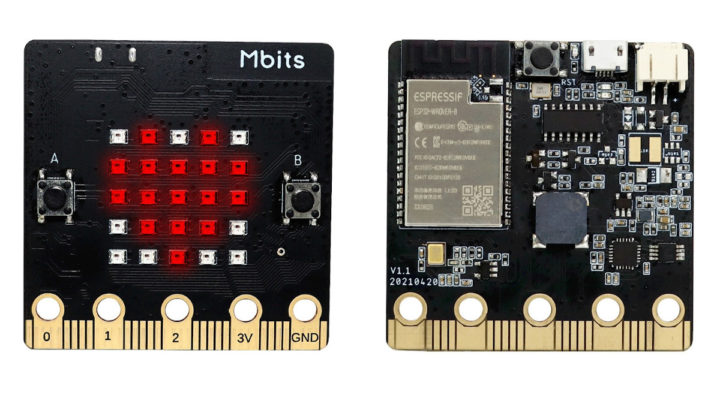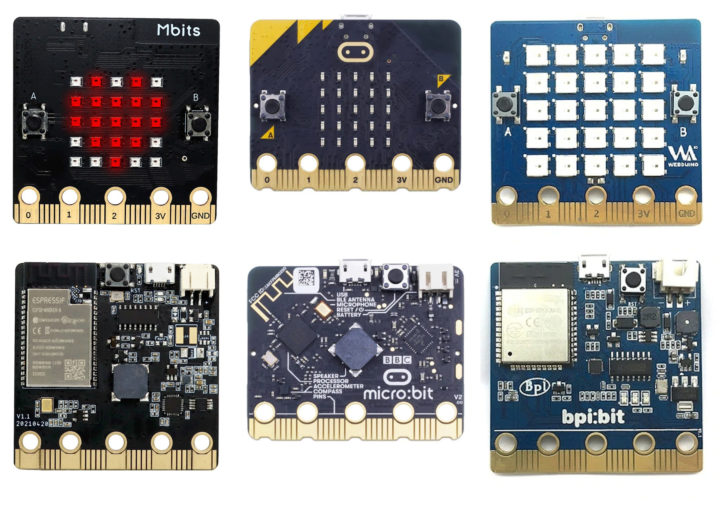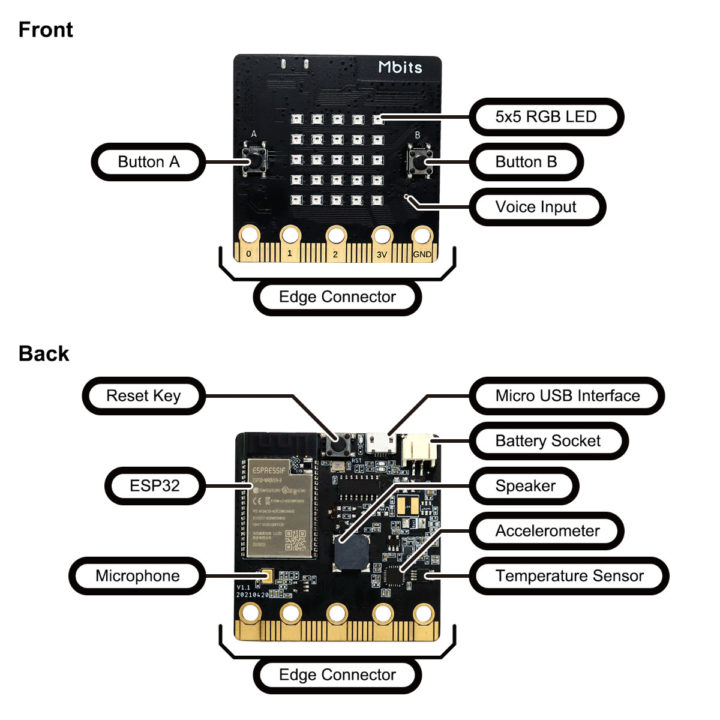A few years ago, we noted a BBC Micro:bit clone based on ESP32 WiSoC with Banana Pi ‘s BPI:bit board with an array of 25 RGB LEDs and WiFi & Bluetooth LE connectivity.
There’s now another such clone with Elecrow Mbits designed in a way that resembles the BBC Micro:bit v2 board, but replacing the Nordic Semi nRF52833 2.4GHz/BLE SoC with the ESP32 dual-core wireless chip with support for both WiFi and BLE.

| Elecrow Mbits | BBC Micro:bit v2 | |
|---|---|---|
| SoC | Espressif Systems ESP32 | Nordic Semiconductor nRF52833 |
| Memory | 8MB RAM | 128KB RAM |
| Storage | 4MB flash | 512KB flash |
| On-board components | MEMS microphone 5x5 RGB LED Accelerometer 2x programmable buttons Speaker Temperature sensor | MEMS microphone and LED indicator 5x5 Red LED Accelerometer 2x programmable buttons Speaker Temperature sensor |
| Edge connector | 25x pins with 3x dedicated GPIO, ADC, PWM, I2C, SPI and ext.power. 5x ring pins for connecting crocodile clips/banana plugs | 25x pins with 4x dedicated GPIO, PWM, I2C, SPI and ext.power. 5x ring pins for connecting crocodile clips/banana plugs. Notched for easier connection |
| Wireless connectivity | 2.4GHz WiFi and Bluetooth LE 4.2/5.x | Bluetooth LE 5.0 |
| Power Supply | 5V via micro-USB port, 3V via edge connector or battery pack | |
| Max current | 500mA available for accessories | 200mA available for accessories |
| Dimensions | 52 x 52 mm | 50 x 40 mm |
| Software support | Letscode visual programming, Arduino | MakeCode, Python, Scratch |
Power consumption of the BBC Micro:bit v2 should be much better, so if anything needs to run on battery for an extended period of time, it may be a better choice, or you’re gonna need a bigger battery. The GPIO pinout looks different too, so not all Micro:bit accessories may work on the clone.

Software support from the BBC could be better, although as we’ve seen in our review of Crowbits Master Kit, the Scratch 3.0-based Letscode IDE does the job, and Elecrow usually provides plenty of example codes and projects for their education solutions.
For Mbits in particular, the company has visual programming samples using Letscode for the 3-axis digital accelerometer, button, buzzer, microphone, and RGB Matrix, as well as a few sketches for Arduino, all documented in the Wiki.
Elecrow sells the Mbits board for $14.90 on their own website.
Thanks to Brian for the tip.

Jean-Luc started CNX Software in 2010 as a part-time endeavor, before quitting his job as a software engineering manager, and starting to write daily news, and reviews full time later in 2011.
Support CNX Software! Donate via cryptocurrencies, become a Patron on Patreon, or purchase goods on Amazon or Aliexpress





